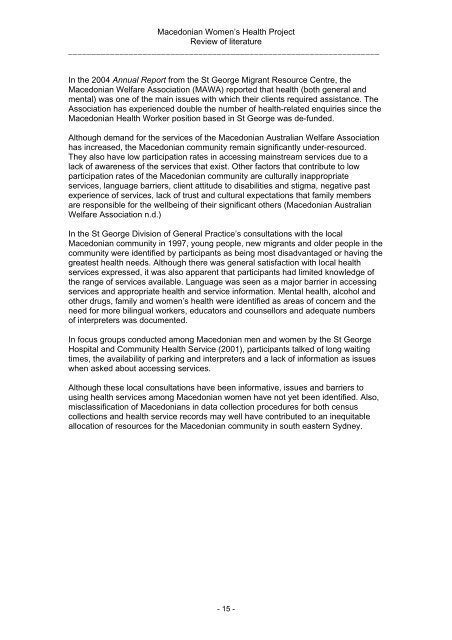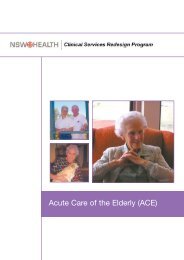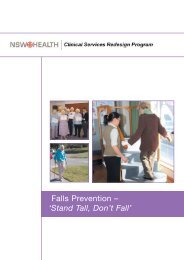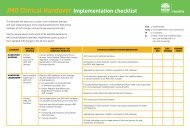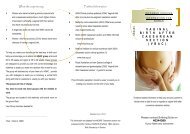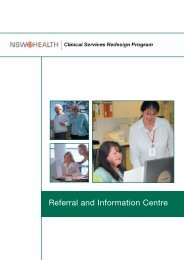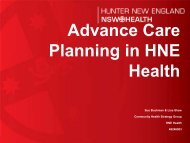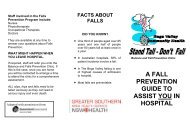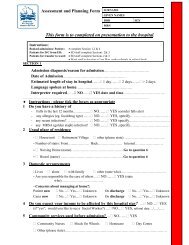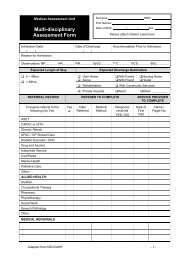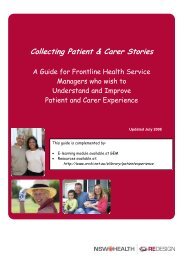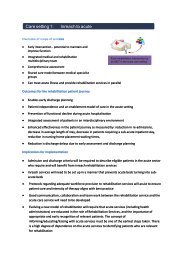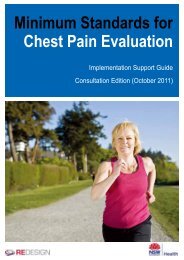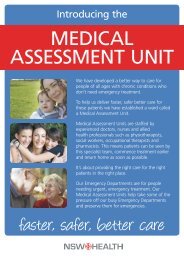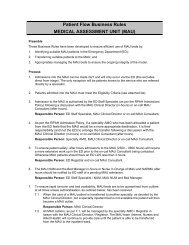A review of literature, 2006 ( pdf - 438 KB) - ARCHI
A review of literature, 2006 ( pdf - 438 KB) - ARCHI
A review of literature, 2006 ( pdf - 438 KB) - ARCHI
Create successful ePaper yourself
Turn your PDF publications into a flip-book with our unique Google optimized e-Paper software.
Macedonian Women’s Health Project<br />
Review <strong>of</strong> <strong>literature</strong><br />
___________________________________________________________________<br />
In the 2004 Annual Report from the St George Migrant Resource Centre, the<br />
Macedonian Welfare Association (MAWA) reported that health (both general and<br />
mental) was one <strong>of</strong> the main issues with which their clients required assistance. The<br />
Association has experienced double the number <strong>of</strong> health-related enquiries since the<br />
Macedonian Health Worker position based in St George was de-funded.<br />
Although demand for the services <strong>of</strong> the Macedonian Australian Welfare Association<br />
has increased, the Macedonian community remain significantly under-resourced.<br />
They also have low participation rates in accessing mainstream services due to a<br />
lack <strong>of</strong> awareness <strong>of</strong> the services that exist. Other factors that contribute to low<br />
participation rates <strong>of</strong> the Macedonian community are culturally inappropriate<br />
services, language barriers, client attitude to disabilities and stigma, negative past<br />
experience <strong>of</strong> services, lack <strong>of</strong> trust and cultural expectations that family members<br />
are responsible for the wellbeing <strong>of</strong> their significant others (Macedonian Australian<br />
Welfare Association n.d.)<br />
In the St George Division <strong>of</strong> General Practice’s consultations with the local<br />
Macedonian community in 1997, young people, new migrants and older people in the<br />
community were identified by participants as being most disadvantaged or having the<br />
greatest health needs. Although there was general satisfaction with local health<br />
services expressed, it was also apparent that participants had limited knowledge <strong>of</strong><br />
the range <strong>of</strong> services available. Language was seen as a major barrier in accessing<br />
services and appropriate health and service information. Mental health, alcohol and<br />
other drugs, family and women’s health were identified as areas <strong>of</strong> concern and the<br />
need for more bilingual workers, educators and counsellors and adequate numbers<br />
<strong>of</strong> interpreters was documented.<br />
In focus groups conducted among Macedonian men and women by the St George<br />
Hospital and Community Health Service (2001), participants talked <strong>of</strong> long waiting<br />
times, the availability <strong>of</strong> parking and interpreters and a lack <strong>of</strong> information as issues<br />
when asked about accessing services.<br />
Although these local consultations have been informative, issues and barriers to<br />
using health services among Macedonian women have not yet been identified. Also,<br />
misclassification <strong>of</strong> Macedonians in data collection procedures for both census<br />
collections and health service records may well have contributed to an inequitable<br />
allocation <strong>of</strong> resources for the Macedonian community in south eastern Sydney.<br />
- 15 -


